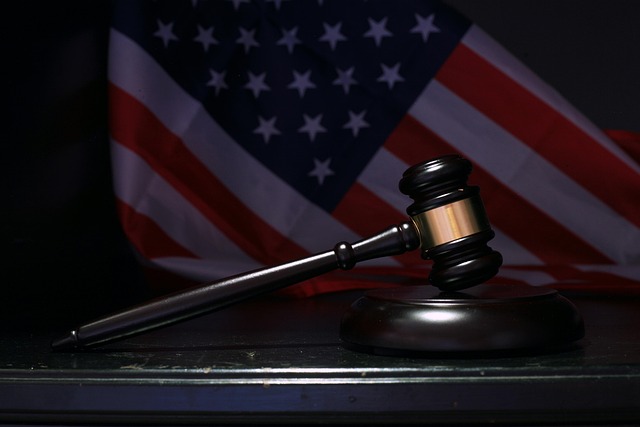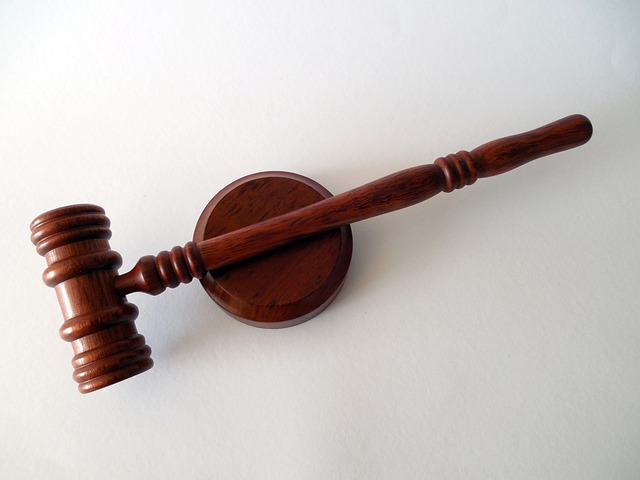Specialized Criminal Defense Attorneys play a crucial role in the Civil Litigation Process for Patent Infringement, guiding clients through complex legal territory. They navigate multiple stages: investigation, evidence gathering, settlement negotiations, and trials, ensuring fair representation and protecting rights. By scrutinizing patent scope, building robust defenses, and leveraging business knowledge, these attorneys safeguard individuals and businesses from penalties.
Criminal Defense Attorneys play a pivotal role in safeguarding individuals’ rights within the legal system. This article delves into the intricate world of patent infringement, offering insights on understanding and navigating complex cases. We explore the civil litigation process for patent infringement, providing a step-by-step guide to help businesses and inventors protect their intellectual property effectively. Additionally, we share strategies employed by defense attorneys to mount successful patent infringement defenses, ensuring a comprehensive overview for those facing such legal challenges.
- Understanding Patent Infringement Cases
- The Role of Criminal Defense Attorneys
- Civil Litigation Process: Step-by-Step Guide
- Strategies for Effective Patent Infringement Defense
Understanding Patent Infringement Cases

Understanding Patent Infringement Cases involves navigating a complex civil litigation process designed to protect intellectual property rights. This intricate procedure encompasses all stages of the investigative and enforcement process, ensuring that infractors are held accountable for their actions. Criminal Defense Attorneys specializing in this area play a crucial role in guiding their clients through these legal labyrinths, shielding them from potential penalties and protecting their interests.
The Civil Litigation Process for Patent Infringement includes several key steps, such as filing a lawsuit, gathering and presenting evidence, including all relevant facts and expert opinions. These efforts aim to prove that the accused party has indeed infringed upon the patent holder’s intellectual property. Ultimately, the resolution may involve settlement negotiations or jury trials, where the decision rests on the interpretation of laws and the weight of presented evidence for his clients.
The Role of Criminal Defense Attorneys

Criminal Defense Attorneys play a pivotal role in our justice system, ensuring that individuals accused of crimes receive fair and just representation. Their primary duty is to safeguard the rights of their clients, often navigating complex legal landscapes to mount a robust defense. These attorneys are adept at challenging the prosecution’s case, examining evidence critically, and presenting compelling arguments on behalf of their defendants.
Beyond negotiating plea deals, which can significantly mitigate consequences, Criminal Defense Attorneys also advocate for their clients in court. They prepare and deliver powerful opening statements, cross-examine witnesses with precision, and craft persuasive closing remarks. This expertise is particularly crucial in high-stakes cases like white collar and economic crimes, where the outcome may impact not just the individual but also businesses and the broader community. Their goal is to ensure that justice is served while protecting the rights of the accused, ultimately shaping the Civil Litigation Process for Patent Infringement and other legal matters through their tenacious pursuit of truth and fairness.
Civil Litigation Process: Step-by-Step Guide

The Civil Litigation Process for Patent Infringement is a structured series of steps designed to resolve disputes between patent holders and alleged infringers. It begins with filing a complaint in a court of competent jurisdiction, outlining the specific claims of patent infringement along with supporting evidence. The defendant is then served with the legal papers, granting them an opportunity to respond within a set timeframe. This response can include denial or an attempt to negotiate a settlement out of court. If negotiations fail, discovery follows, where both parties exchange relevant information and documents crucial for building their case.
The next phase involves pre-trial activities like motions practice, where legal arguments are presented to the court. During this period, strategic decisions are made, including selecting expert witnesses and evaluating the strength of evidence. This meticulous process aims to streamline issues before reaching a trial. If all attempts at resolution fail, the case proceeds to trial. Here, both sides present their evidence and arguments to a judge or jury, who ultimately decides the outcome. Achieving extraordinary results in civil litigation often hinges on a deep understanding of patent laws, strategic planning, and a commitment from both legal teams to navigate this complex process effectively.
Strategies for Effective Patent Infringement Defense

In the Civil Litigation Process for Patent Infringement, a strategic defense is paramount to ensuring a favorable outcome. Criminal Defense Attorneys specializing in patent law often employ multifaceted approaches to counter allegations. The initial step involves meticulously examining the patent’s scope and validity, challenging its enforcement where applicable limitations or ambiguities exist. This strategic move aims to weaken the plaintiff’s case from the outset.
Furthermore, these attorneys may leverage precedential cases and legal doctrines to build a robust defense. By citing relevant jurisprudence and presenting compelling arguments, they can demonstrate that the accused activity does not constitute infringement. Additionally, focusing on the respective business practices and operations helps tailor defenses specific to white-collar and economic crimes, leveraging an unprecedented track record of successful outcomes in such complex matters.
In the complex landscape of intellectual property law, criminal defense attorneys play a pivotal role in navigating patent infringement cases. By understanding both the intricacies of patent law and the civil litigation process, these legal experts can effectively defend clients against accusations. The step-by-step guide to civil litigation outlined in this article serves as a tool for those seeking to explore their options. Moreover, employing strategic defenses tailored to patent infringement cases is crucial for ensuring the best possible outcome. Remember that, in today’s digital era, where innovations are rapidly transforming industries, having seasoned legal counsel by your side can make all the difference.






